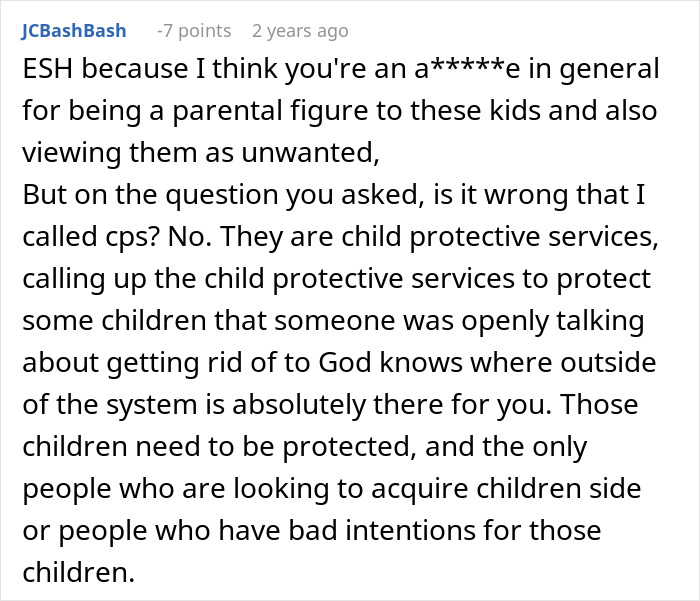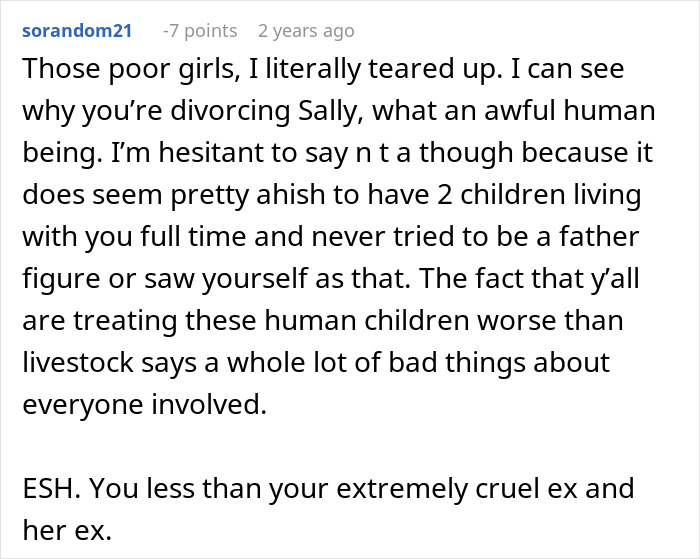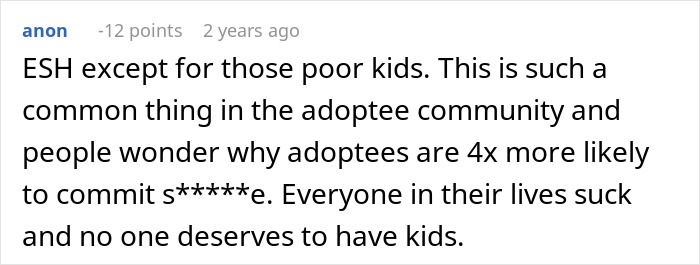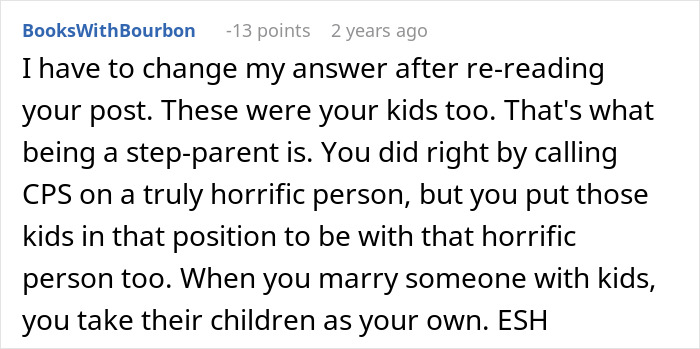Divorces can get messy, but this Redditor didn’t expect things to go this far.
His soon-to-be ex, a mom of six, told him she was leaving her two adopted daughters with him—kids he hadn’t raised and wasn’t prepared to take in. She even threatened to “rehome” them elsewhere if he refused.
Unsure of what else to do, he called CPS. In the end, they stepped in and took custody of all six of her children. Now, he’s left wondering: did he overreact?
Read the full story below.
The man’s soon-to-be ex-wife told him she was leaving her two adopted daughters with him

Image credits: 1footage / envato (not the actual photo)
Not prepared to take them in, he called CPS
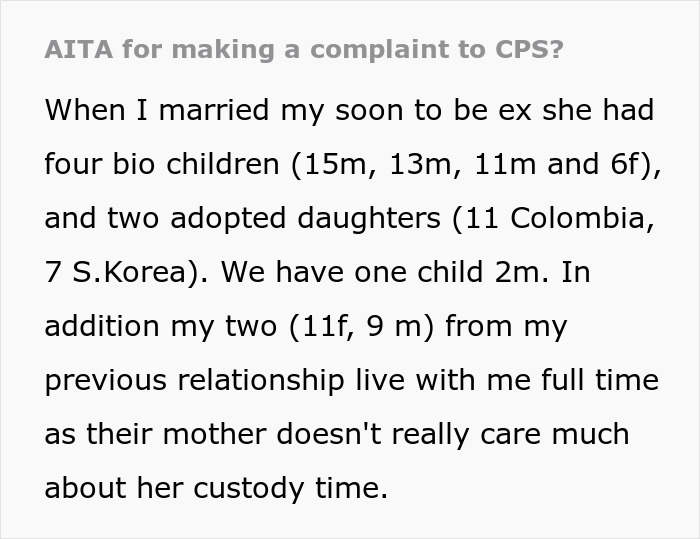
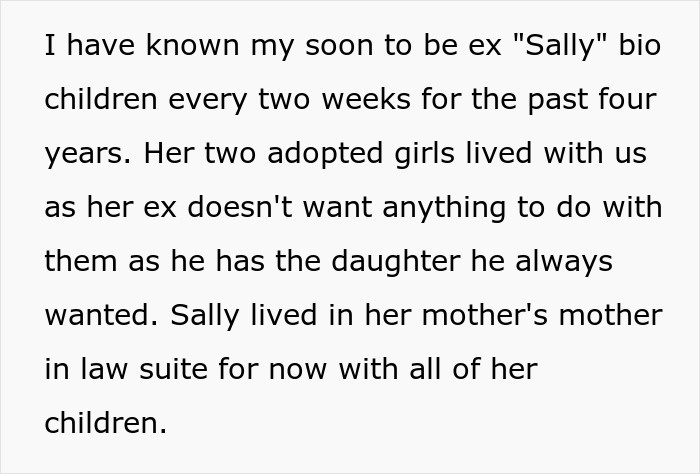
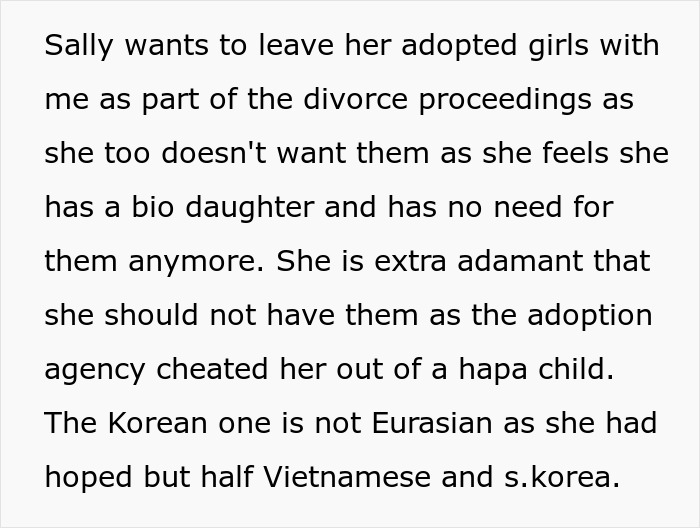
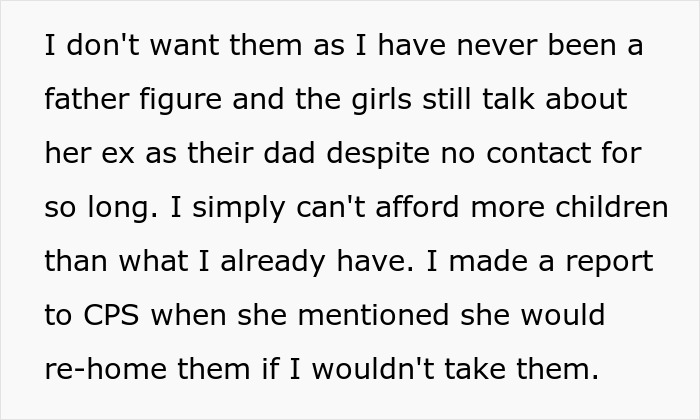
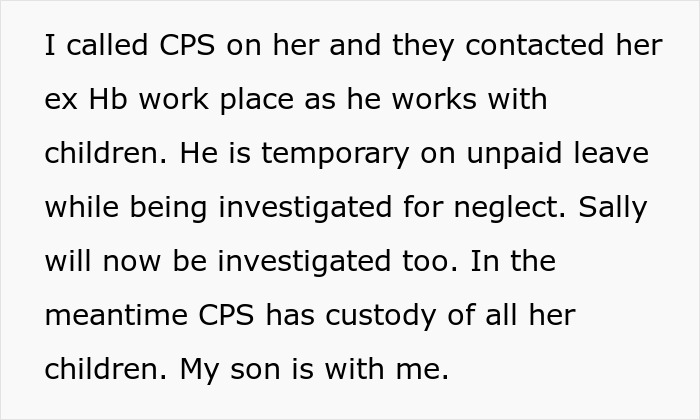

Image credits: Media_photos / envato (not the actual photo)
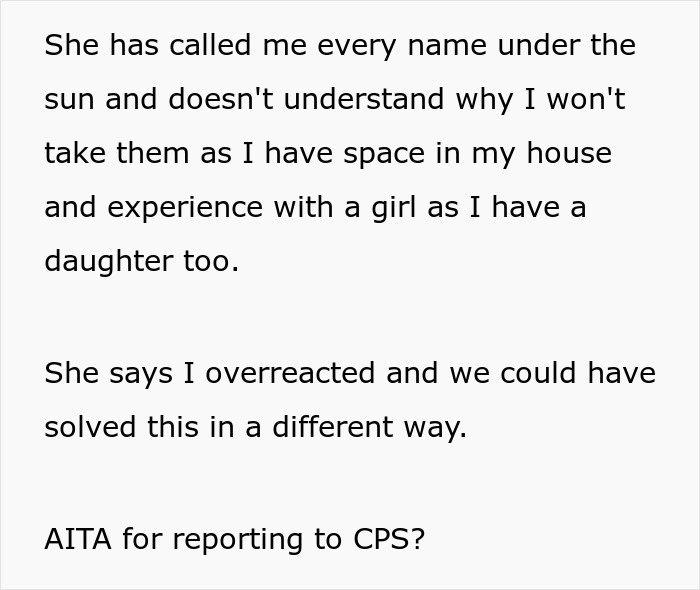
Image credits: Sad_Cantaloupe_7175
What are the mental health effects of being adopted?
Adoption is often seen as a fairytale, giving children a chance to grow up in a loving family with a bright future.
But reality isn’t always so perfect.
Adoptees are statistically more at risk for mental health challenges, often due to a mix of early trauma and genetics. Biological parents may have faced their own struggles, which can be passed down genetically, while the experience of separation itself can leave deep marks.
A meta-analysis on adoptees’ mental health found they have higher rates of depression and anxiety than non-adoptees, with bipolar disorder and major depressive disorder being the most commonly associated conditions.
While some of this risk comes from trauma linked to experiences with biological parents or time in the foster system, even those adopted as infants can still feel the impact.
“I didn’t suffer any major traumas within my adoptive family, or in general growing up,” said Theodora Blanchfield, an associate marriage and family therapist, in an article for Verywell Mind.
“And yet, I have dealt with severe depression, and my psychiatrist monitors me for signs of bipolar because of genetic susceptibility combined with that attachment trauma.”
One significant factor is how separation from biological parents can disrupt attachment and create feelings of not truly belonging.
“It’s not natural for a baby anything to be separated immediately from its mother,” said Lesli Johnson, LMFT, a therapist who works with adoptees.
Attachment is the emotional bond formed with caregivers, shaping how we connect with others. Research shows adoptees often face higher levels of attachment insecurity, particularly those adopted after their first year of life.
Yet, while grief is acknowledged in situations like death or divorce, adoption-related grief often goes unrecognized. This is known as disenfranchised grief, a type of grief that society struggles to acknowledge.
Johnson notes this is common among adoptees due to societal messages like “you should be grateful” or “you were adopted into a good family.”
As a result, many adoptees may struggle with relationships in adulthood. “They wonder, ‘Who can I trust?’” Johnson explained, adding that because early experiences of “love” included loss, adoptees can fear abandonment.
Finding one’s identity is a challenge many people face, but for adoptees, it can feel even more complex. Not knowing the people who share your genetics can make understanding who you are even harder.
However, Blanchfield encourages a more nuanced view of adoption, beyond seeing it as entirely good or bad.
“Anti-adoption advocates paint adoption as akin to human trafficking; adoptive parents and adoptee advocates paint adoption like it’s a fairy tale with a happy-ever-after ending,” she said. “But what if it’s somewhere in between?”
She urges adoptees to recognize that their feelings are valid. Even if they love their adoptive family and appreciate the life they have, they shouldn’t feel guilty for experiencing mental health challenges or hesitate to seek help.
As readers reacted, the author shared more details about the situation in the comments
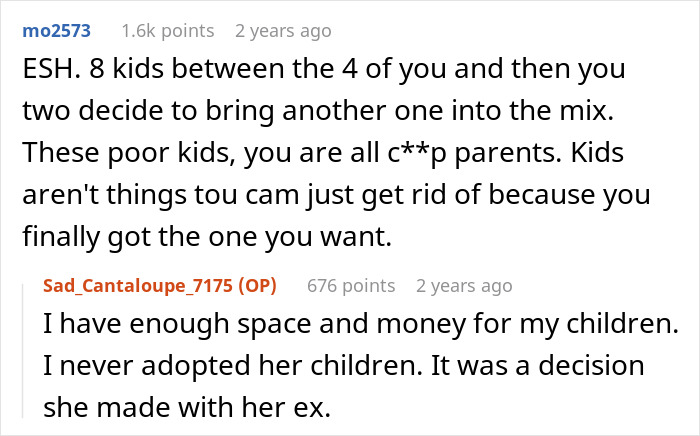
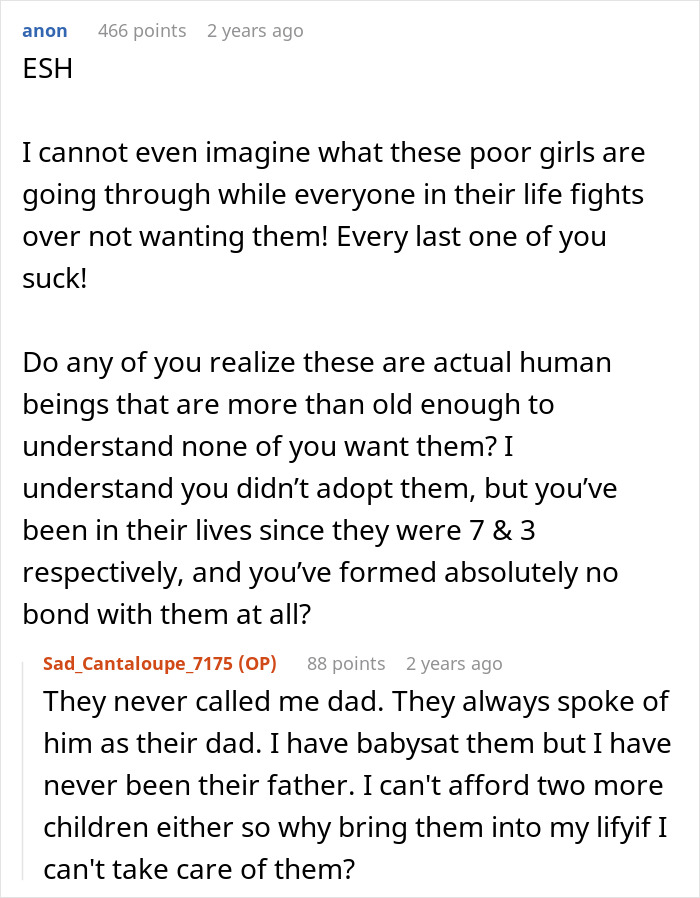
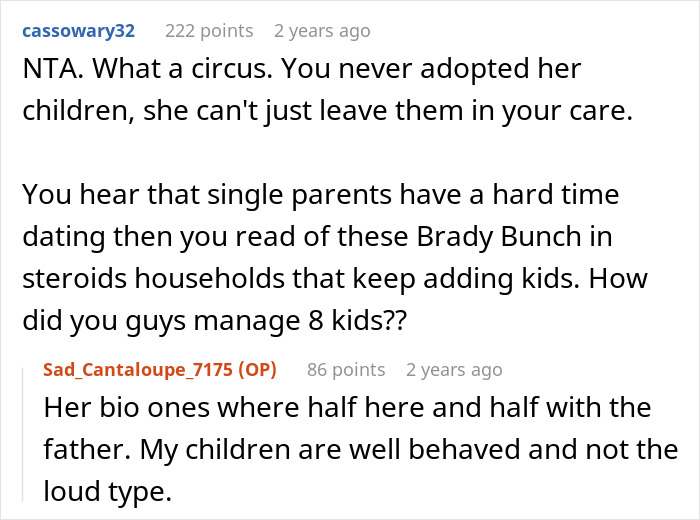
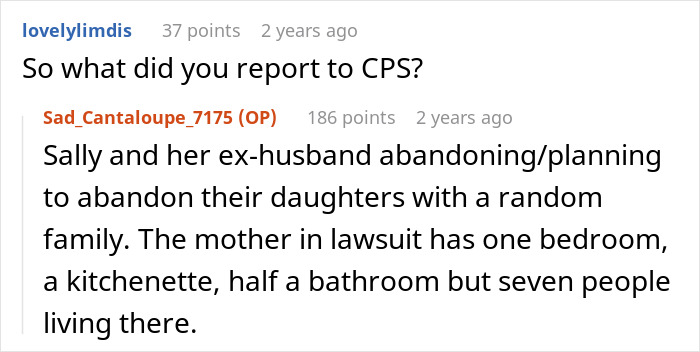
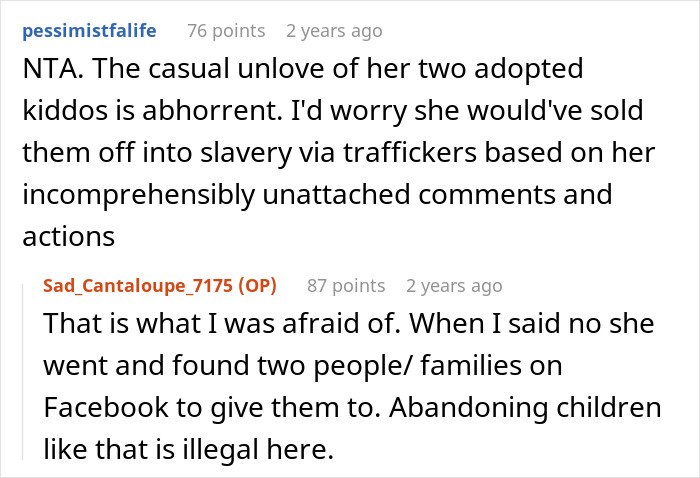
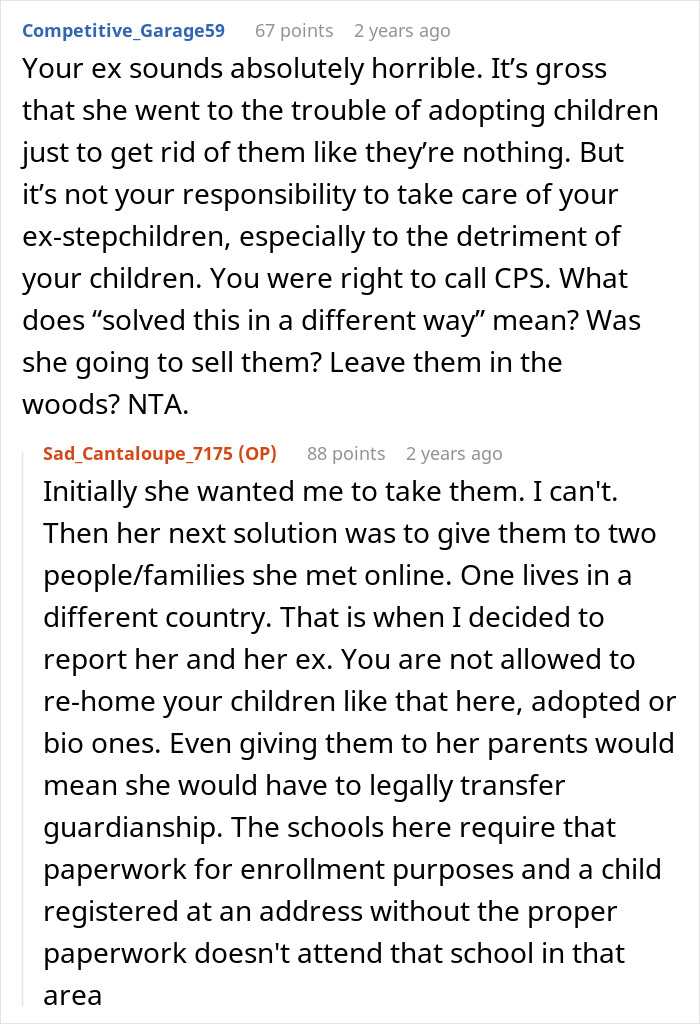
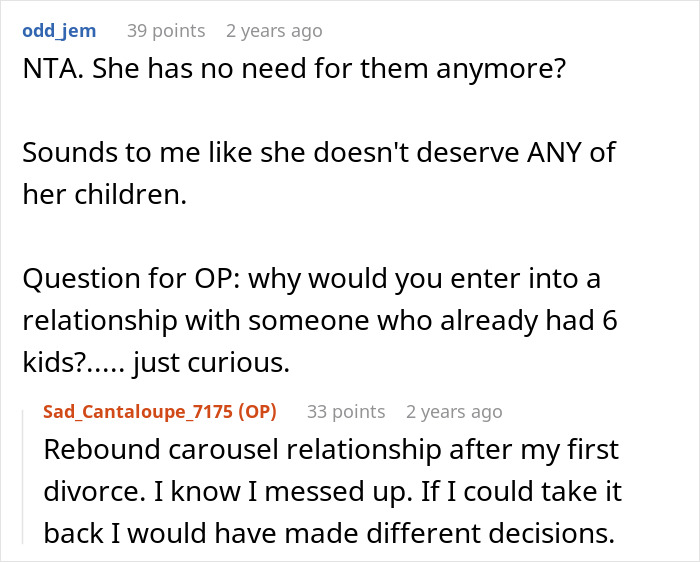
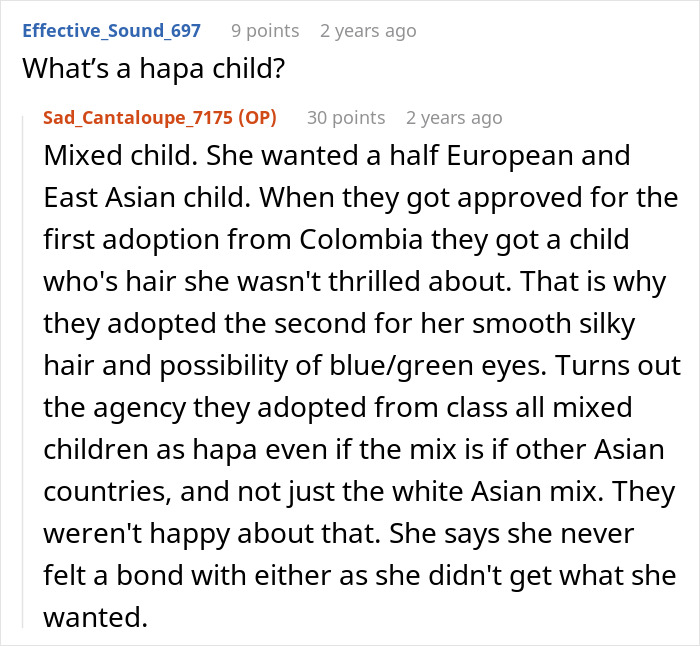
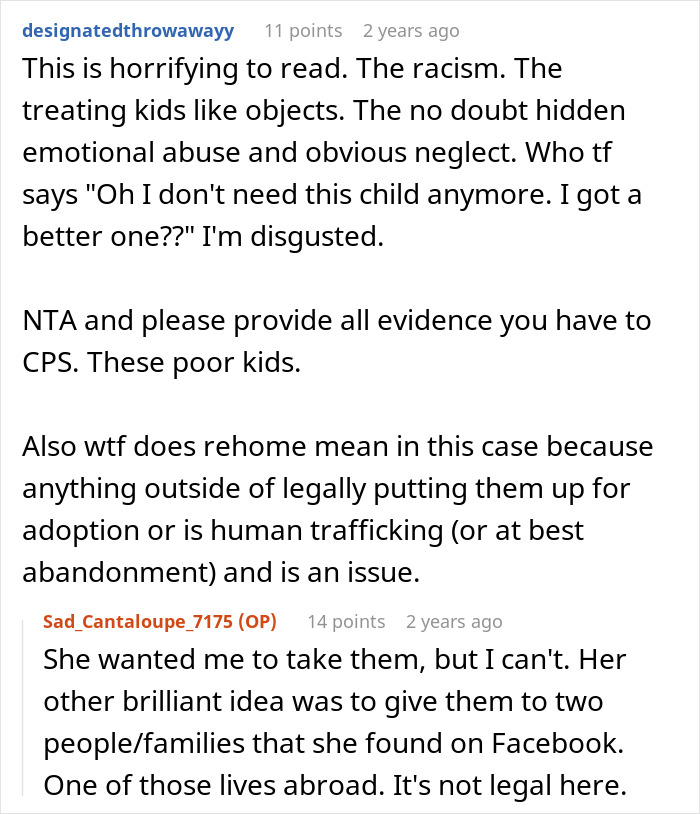
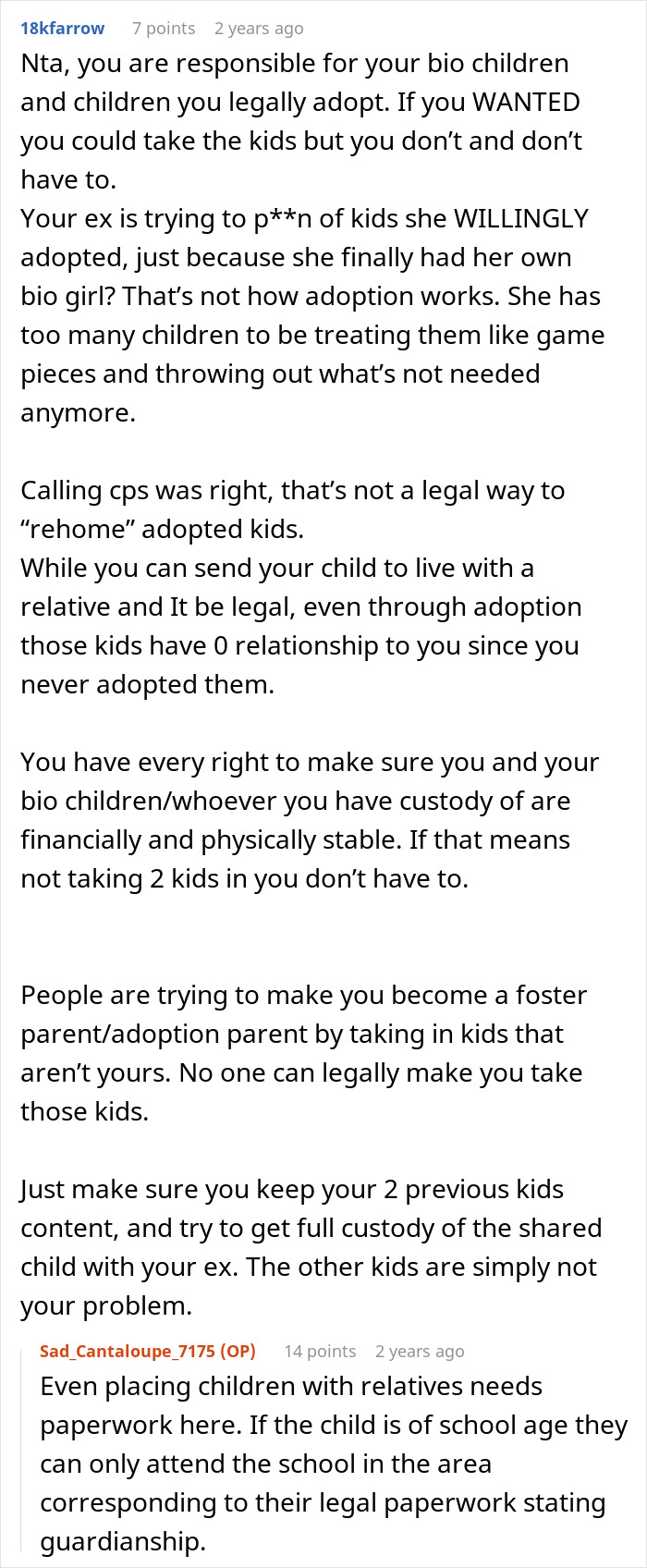
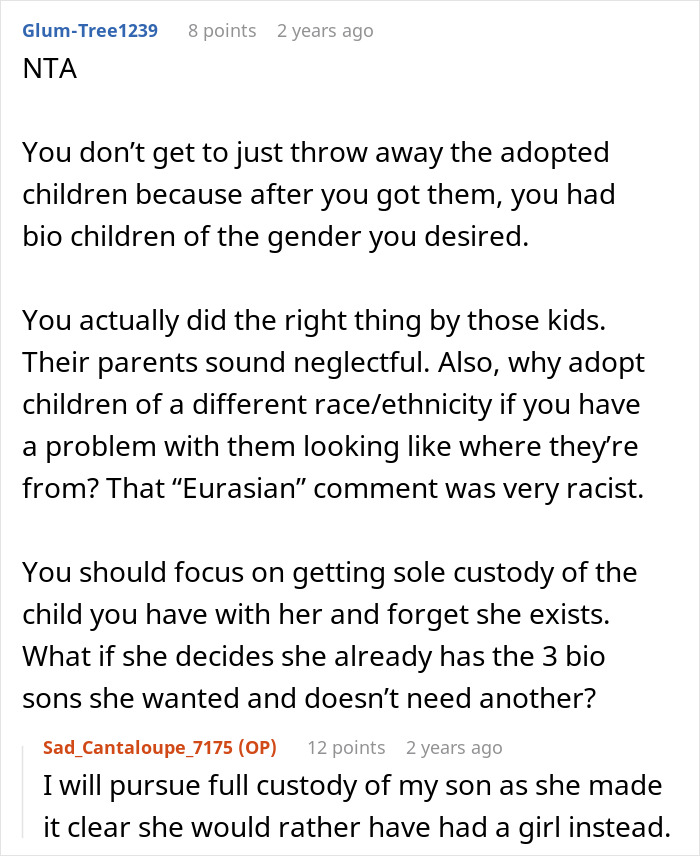
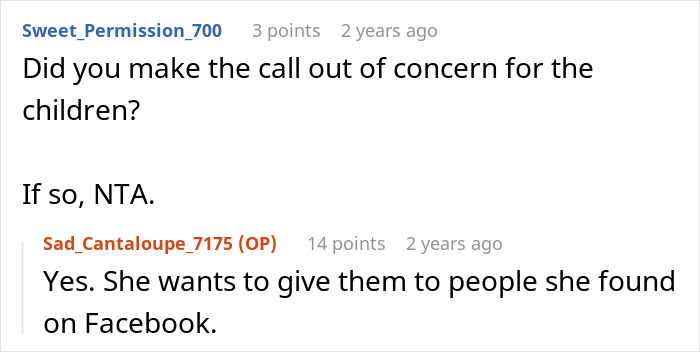
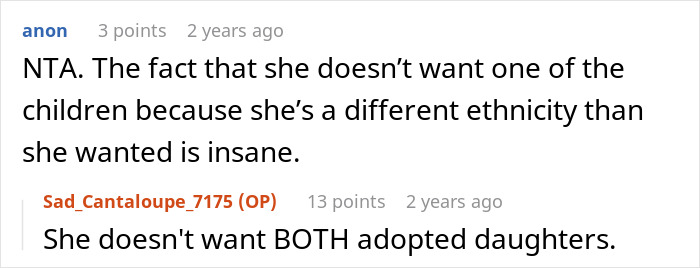
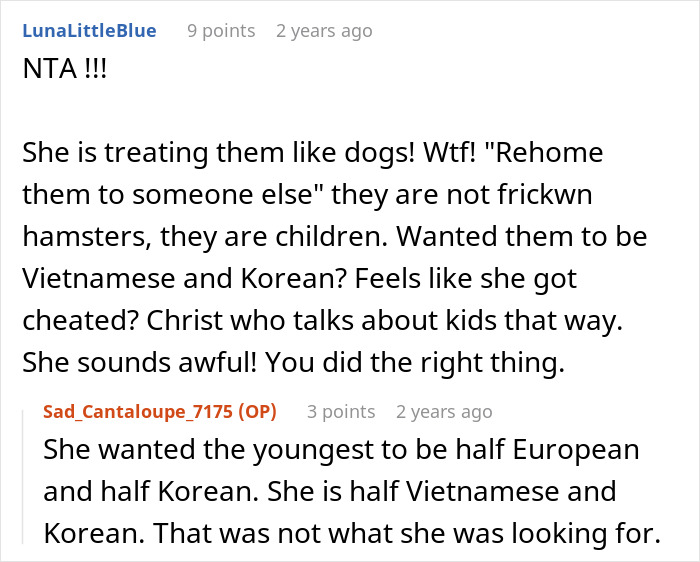
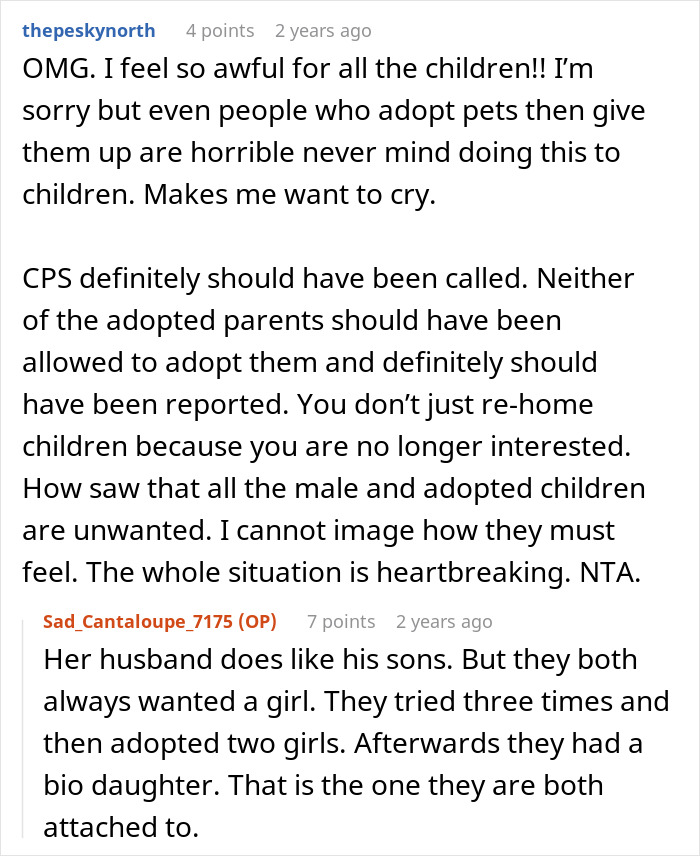
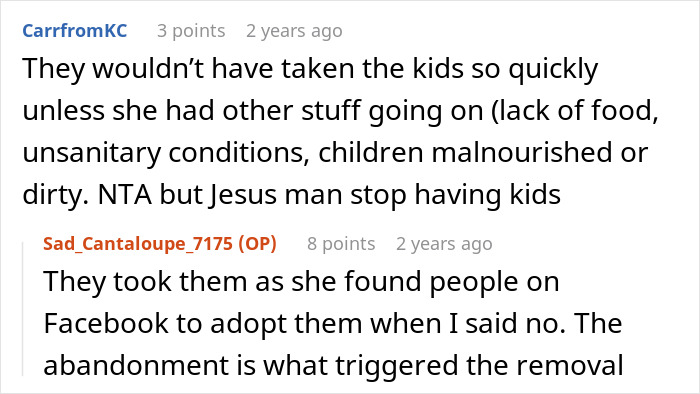
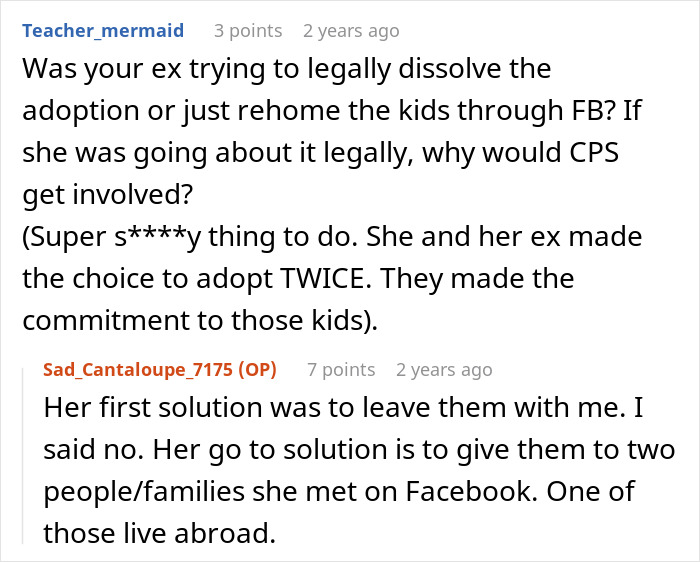
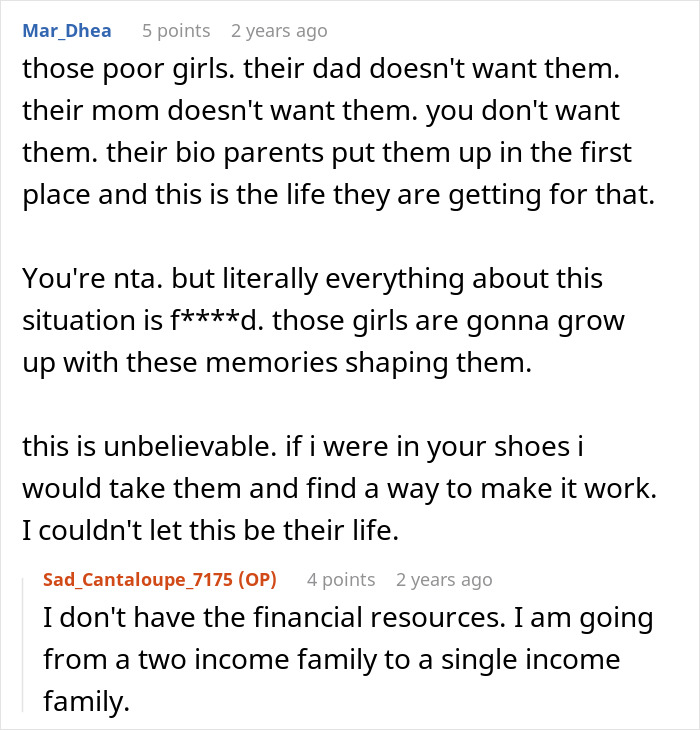
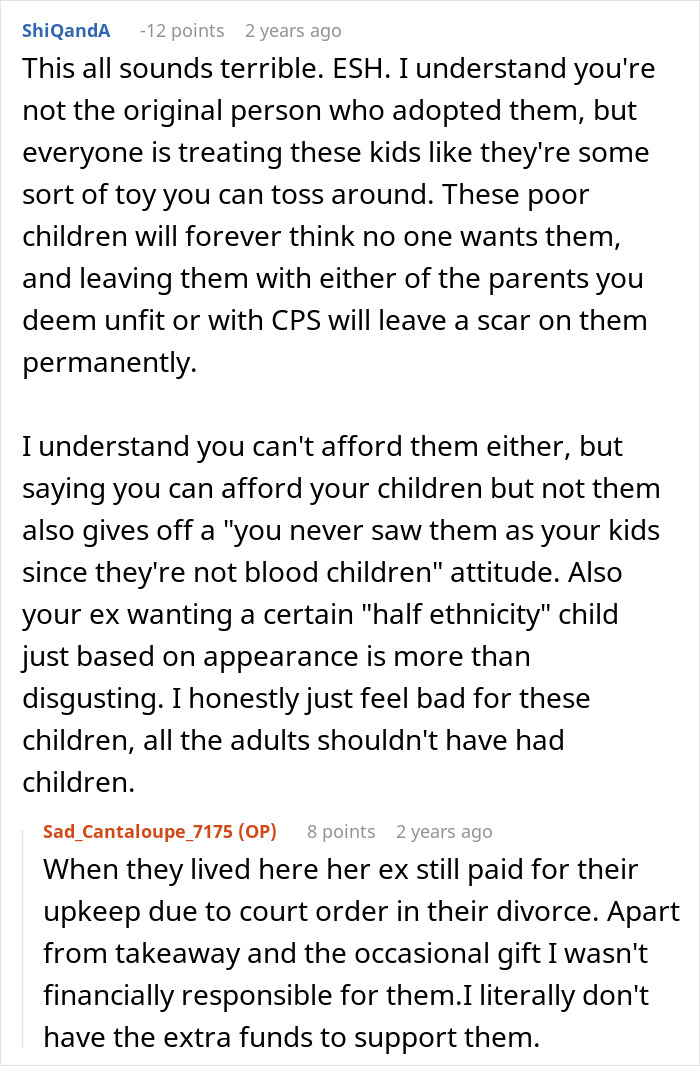
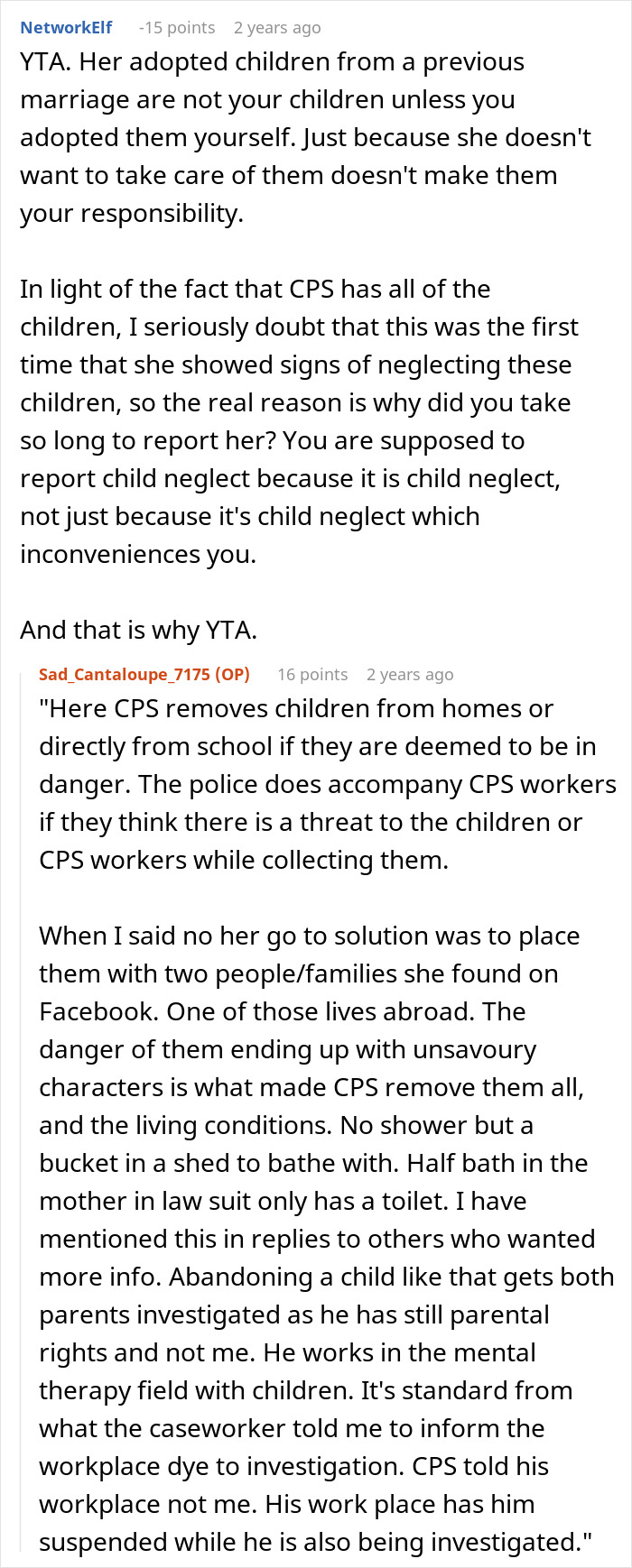
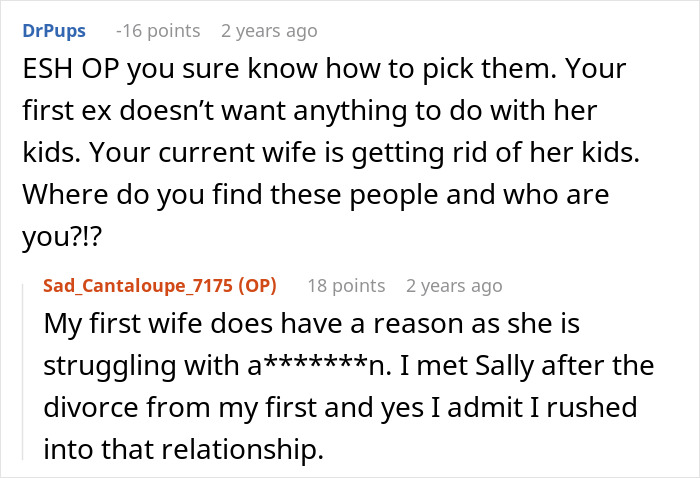
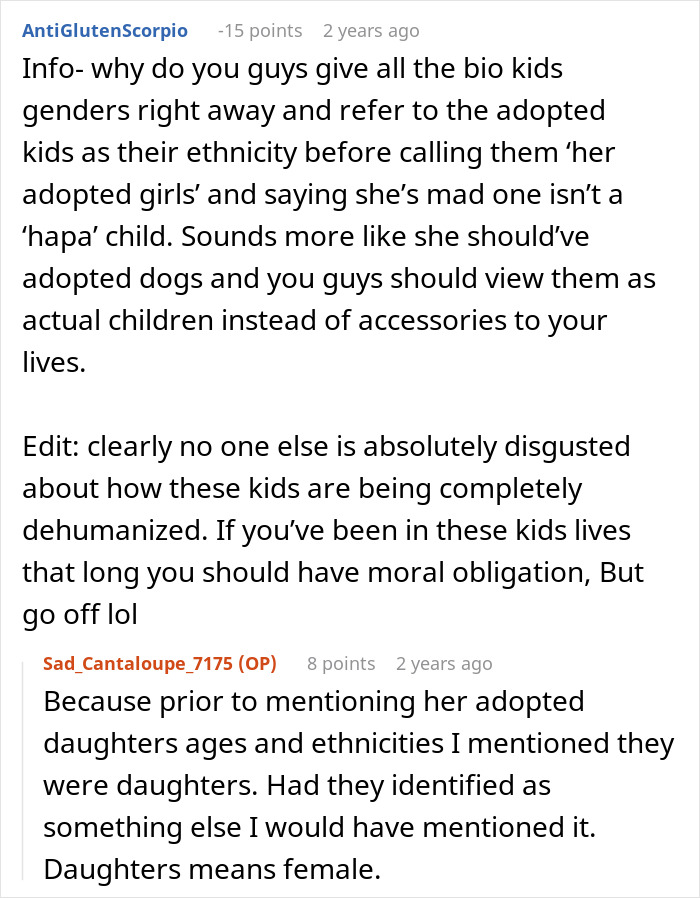
Some believed he wasn’t responsible for these children
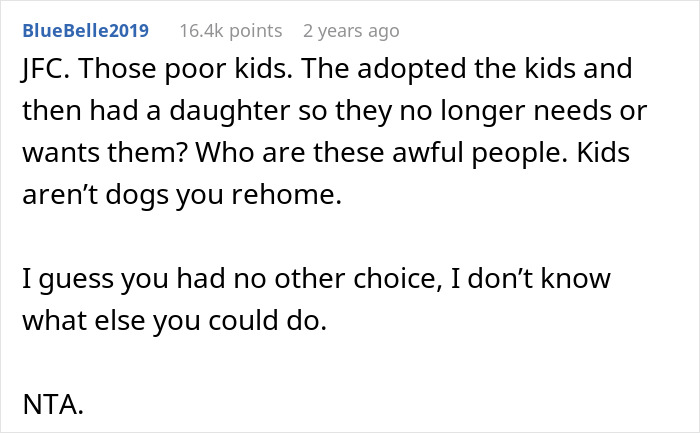

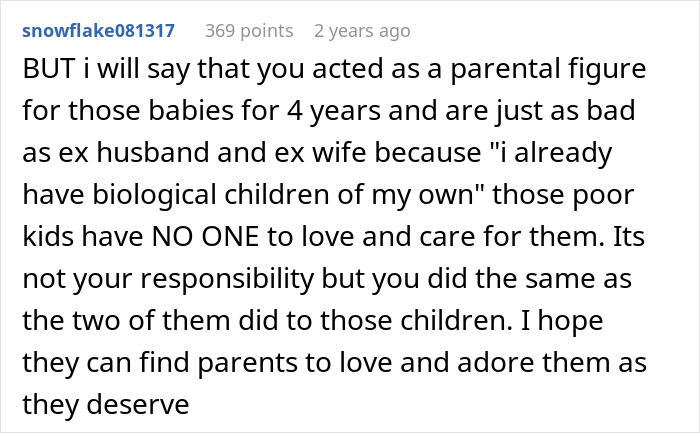
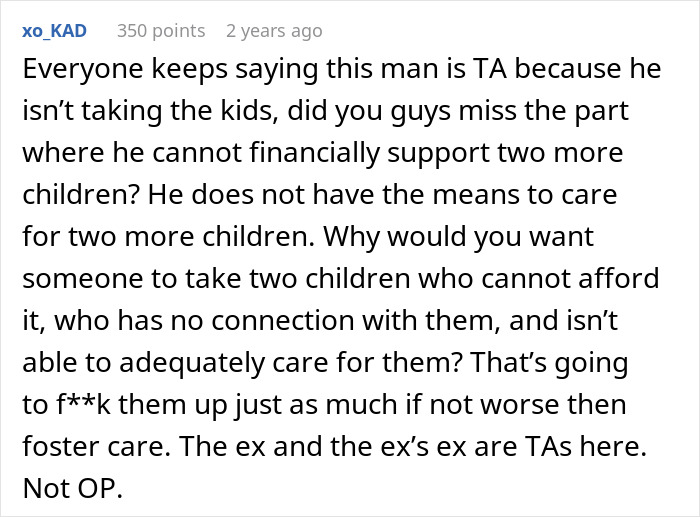
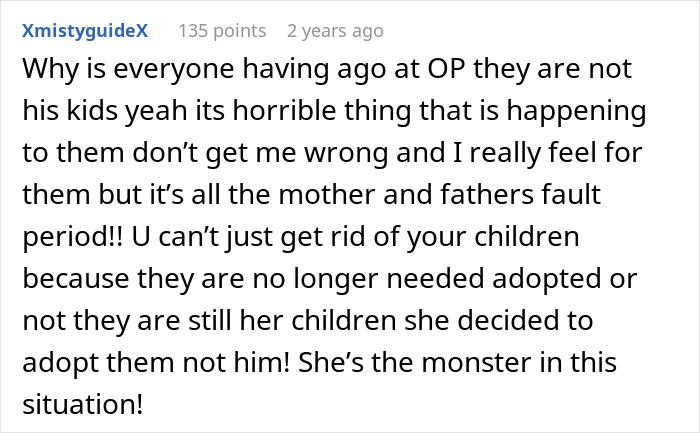
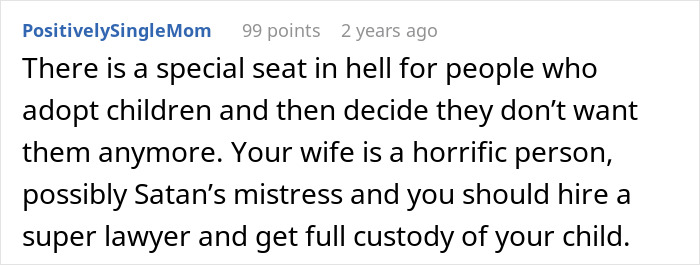
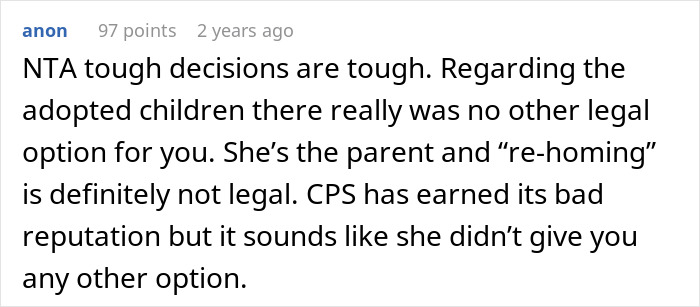
Others, however, felt that everyone involved was in the wrong, considering how the kids’ lives were being affected



